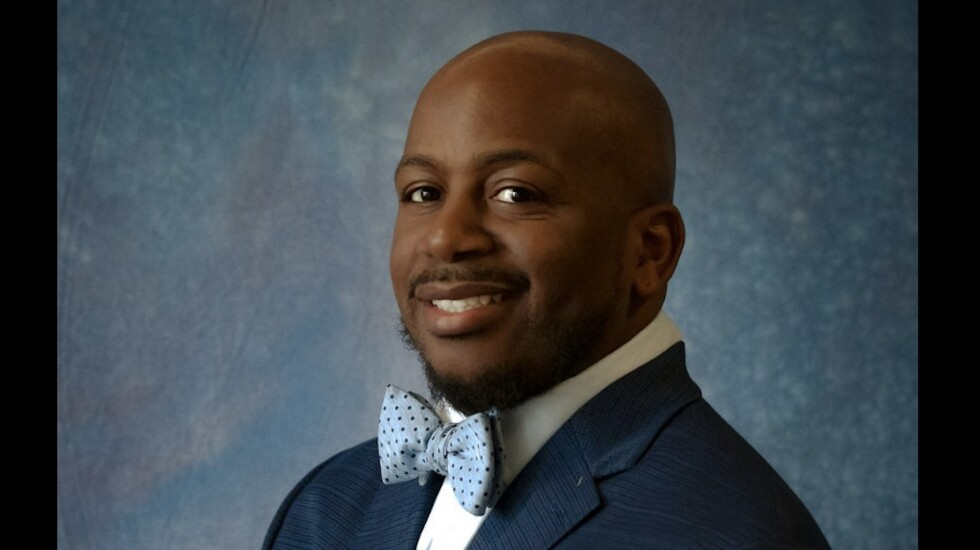
Mayor Brandon Johnson campaigned on a promise to confront the “root causes” of violent crime by making $1 billion worth of “investments in people” largely bankrolled by $800 million in new or increased taxes.
Hours after his inauguration, Johnson signed an executive order creating the position of deputy mayor for community safety. Gone was the job of deputy mayor for public safety that became a revolving door under former Mayor Lori Lightfoot.
On Friday, Johnson chose Garien Gatewood, director of the Illinois Justice Project, to fill the job he views as pivotal to delivering on his most important campaign promise.
Gatewood could not be reached for comment.
At the Justice Project, Gatewood was charged with developing strategies to support young people, adults and returning citizens. He also provided behind-the-scenes support for the Illinois SAFE-T Act that became campaign fodder during Gov. J.B. Pritzker’s reelection campaign because of its still-stalled proposal to eliminate cash bail.
The decision to confront the root causes of violent crime is not new.
Lightfoot did the same thing with some success over the last years.
She called it “Our City, Our Safety.” The program identified the 15 most violent community areas and flooded those neighborhoods with a soup-to-nuts buffet of government services.
If Lightfoot’s approach was apparently working, the question is why Johnson feels the need to change gears — even symbolically — with a title change?
“The relationship between the Chicago Police Department and the mayor really cannot afford an intermediary. It’s got to be direct,” Johnson’s senior adviser, Jason Lee, told the Sun-Times.
“So, we wanted to redefine that position and make it less about liaising and being an intermediary and more about focusing on the other aspects of public safety beyond law enforcement that are so critical to our agenda,” Lee said.
Lightfoot changed deputy mayors for public safety in the middle of a violent crime wave four times in three years.
John O’Malley, who served with Lightfoot on the Chicago Police Board, left City Hall in June 2022, after just one year on the job just as Lightfoot was revving up for her reelection campaign.
O’Malley was replaced by Elena Gottreich, deputy director of prosecutorial strategies at the police department. O’Malley joined Norm Kerr and Susan Lee as permanent or acting deputy mayors for public safety who didn’t last long under Lightfoot.
Lee resigned in October 2020, just days after delivering a report outlining City Hall’s strategy to tamp down runaway violence.
Jason Lee argued that the ill-conceived job of deputy mayor for public safety had a lot to do with Lightfoot’s revolving door.
“It was an untenable position. You really couldn’t do the job that you were supposed to do. And then, if there was an issue, you probably were getting terminated as a scapegoat for public safety issues,” he said.
After the April 15 downtown rampage and crime spree by a mob of young people that went viral on social media, Johnson was criticized for condemning the behavior, but saying that it was “not constructive to demonize youth who otherwise have been starved of opportunities in their communities.”
Gatewood’s extensive experience in dealing with young people makes him the ideal choice to develop constructive alternatives, Jason Lee said.
“He wants to make sure that young people are supported. That young people have enrichment opportunities, that they have employment opportunities to not just receive an income, but develop their purpose and direction in life, which really is the key to better choices,” Lee said.
“He wants to convene organizations, institutions, the business community to facilitate those opportunities for young people and also have dialogue directly with him,” said Lee, “which is another thing that we often don’t do. We don’t talk to young people and hear their concerns — hear what they want to see, what they would enjoy. He’s someone who believes in taking his cues from them to design programs that they’ll actually do.”
Susan Lee described Gatewood as a “good guy who is committed to progressive public safety strategies.”
But she questioned whether the Johnson administration has “structured the role to drive reform and data-driven, effective policing and violence reduction strategy.”







